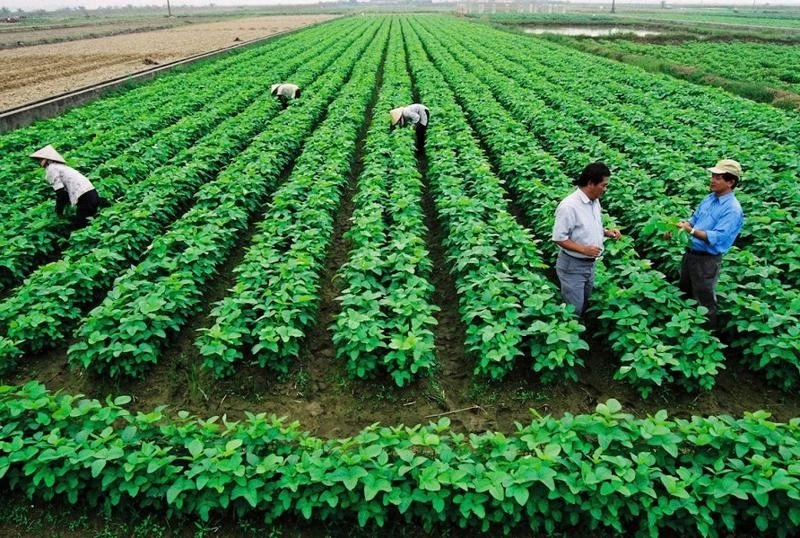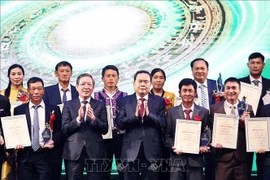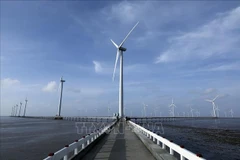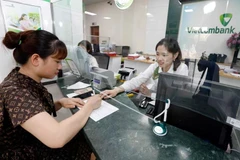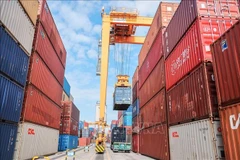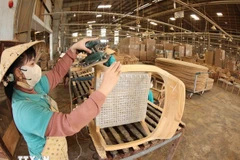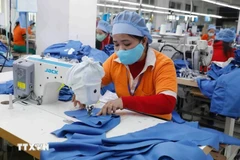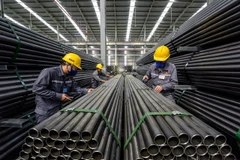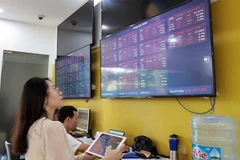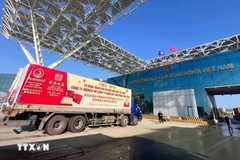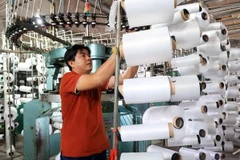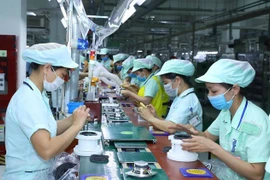Hanoi (VNA) - To achieve a successful green transition, a suitable supportive policy framework is needed to enable cooperatives to access technology, financing, training, and market opportunities, an official from the Ministry of Finance (MoF) has stated.
Addressing the 2025 national forum on cooperatives in Hanoi on April 11, Bui Anh Tuan, Director of the MoF’s Department of Private Enterprise and Collective Economy Development, stressed that to accelerate the green transition, ministries and sectors must promptly implement the 2023 Law on Cooperatives and review and revise outdated or inconsistent policies to align with new regulations.
Collective economic organisations and cooperatives should proactively study and implement the law and its guiding documents, and propose support demands, especially in infrastructure and equipment through public investment sources, he noted.
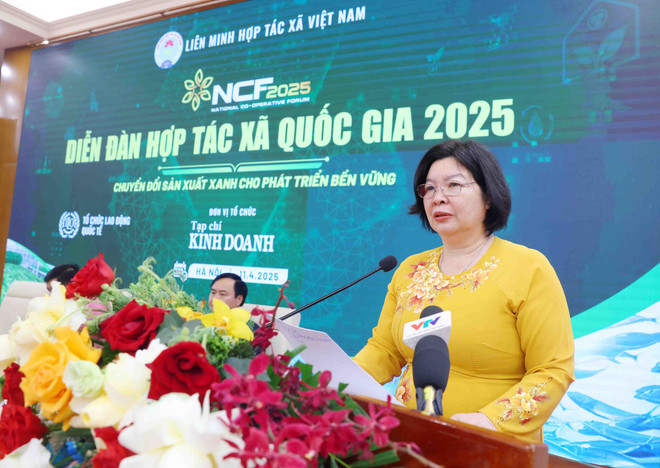
The collective economic area must focus on addressing long-standing barriers, shifting its mindset, and taking the initiative with creativity, rather than relying solely on the state’s support, he said, adding that it is necessary to speed up digital transformation and green transition, adopt scientific and technological advancements, and develop along the lines of circular economy, knowledge-based economy, organic agriculture, and value chains.
New policies are expected to give fresh impetus to help the collective economic area adapt to climate change, enhance competitiveness in line with the rapid and sustainable development orientations set out in Vietnam’s socio-economic development strategy in 2021 – 2030.
In her opening remarks, Chairwoman of the Vietnam Cooperative Alliance (VCA) Cao Xuan Thu Van noted that amid mounting pressures from climate change, resource depletion, and green integration requirements, it has become essential for cooperatives in Vietnam to shift toward clean production, adopt technology, ensure traceability, and participate in the carbon credit market.
The collective economy, with cooperatives at its core, is increasingly affirming its role in fostering production linkages, improving labour productivity, and building efficient value chains, she said.
Wherever there is production and economic development demand, there are cooperative groups and cooperatives, Van said, adding that if effectively developed, these not only help improve people’s incomes but also contribute to the nation’s GDP growth, supporting Vietnam in achieving its sustainable GDP growth goal.
According to economist Can Van Luc, developing green economic models, improving environmental quality, reducing greenhouse gas emissions, and protecting biodiversity and ecosystems are currently top priorities of Vietnam.
To enable cooperatives to grow and expand their contributions to the economy, green development strategies and plans must be closely aligned with national, local, and cooperative-level socio-economic development strategies and plans, Luc said.
One of the important solutions is to promptly issue a "green classification" list, identify priority industries, and assign independent organisations to verify green criteria.
Attention should be paid to building mechanisms and criteria for evaluating environmental impacts; implementing policies to change consumer behaviour, daily activities, and investments; providing financial support through tax, fee, and interest rate incentives; establishing a green transition support fund; and developing a "cooperative credit" model; attracting private investment in the green fields; and training human resources serving the transition process, participants said.
They stressed that the VCA needs to change its mindset, viewing green transition as a strategic investment in people, technology, and branding, and that it is essential to quickly deploy new cooperative models, enhance staff capacity, increase the ability to attract capital, and improve links with other economic sectors.
Vietnam currently has over 33,500 cooperatives operating in different fields, with agriculture accounting for more than 64% of the total and involving over 3.8 million farmers./.
